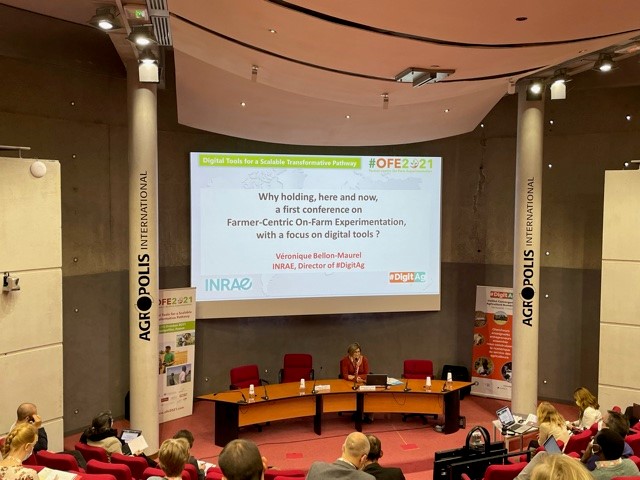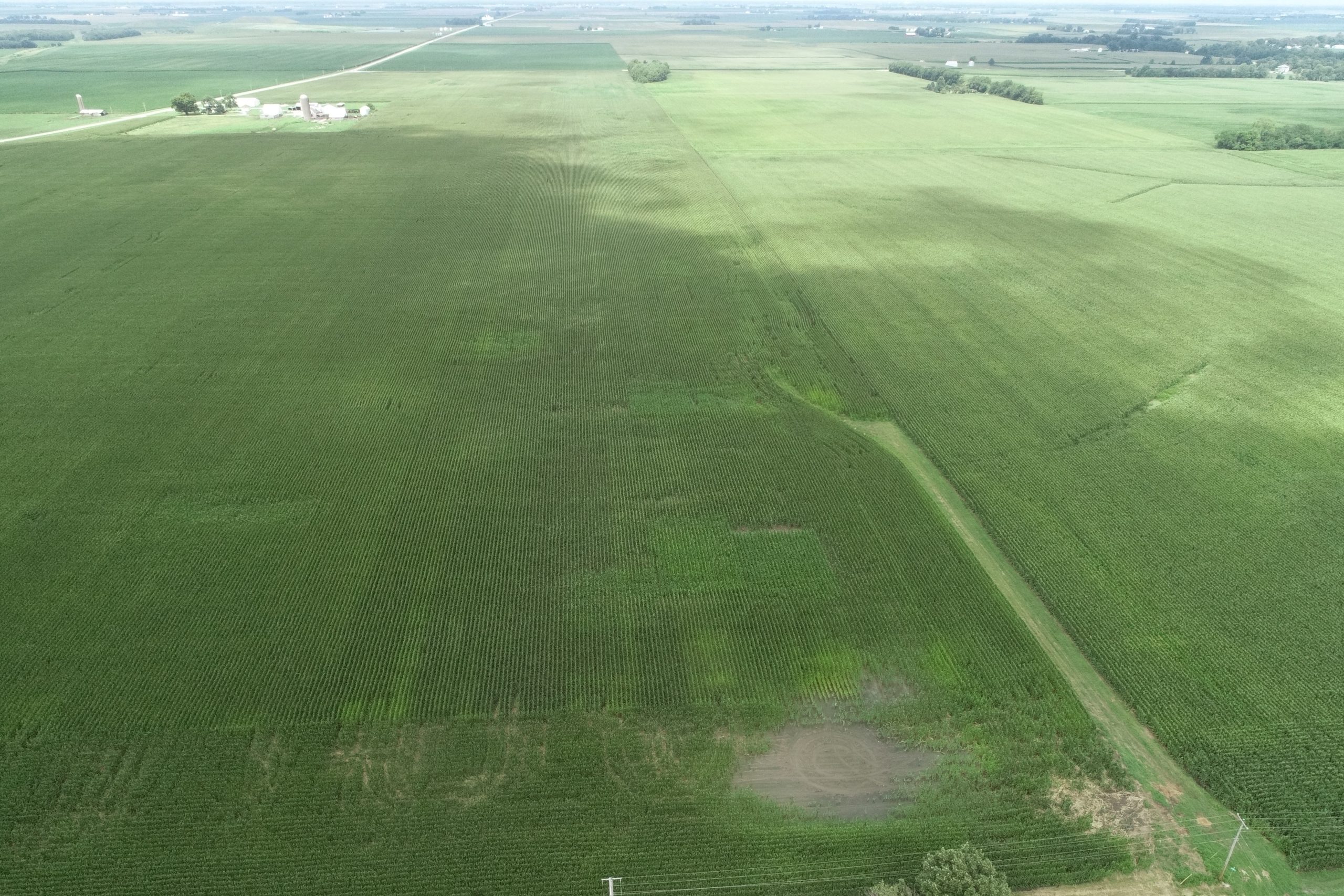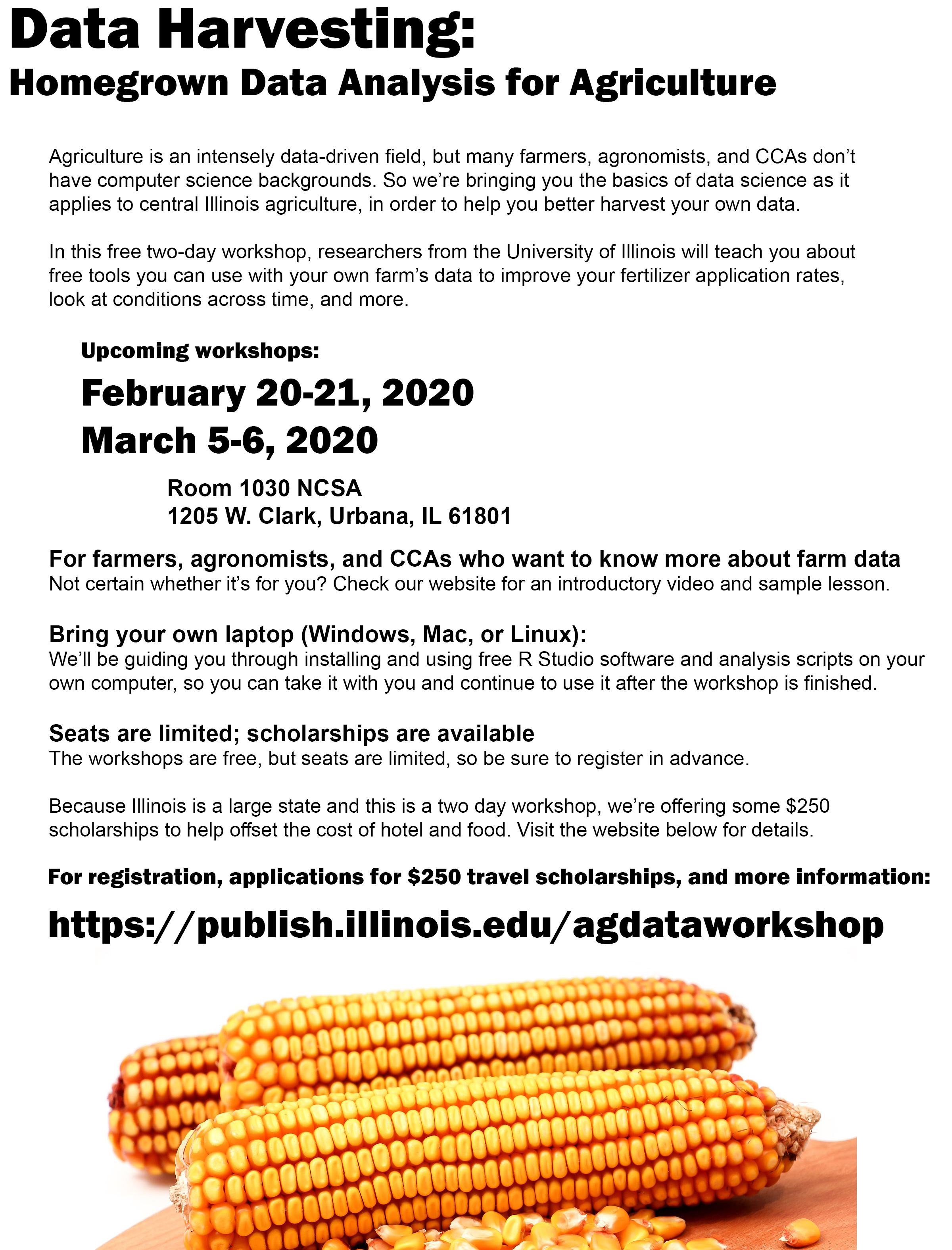In October 2021, David Bullock was invited to Montpellier, France and the Bonn, Germany to give presentations titled “Contributing to an International Cyber-Infrastructure for On-farm Precision Experimentation” before the OFE2021 “Farmer-Centric On-Farm Experimentation” Conference (https://ofe2021.com/ ) and the University of Bonn PhenoRob Institute (https://www.phenorob.de/ ). The purpose of the trip was to publicize DIFM’s latest efforts and seek collaboration with researchers in the European Union. 
Tag Archives: illinois farm management
A New Multistate Research Project
The DIFM team has created a multistate Research Project, titled NC1210: Frontiers in On-Farm Experimentation. This project will enable researchers from all across the United States to collaborate and host meetings on an annual basis.
Land Grant Participating States/Institutions: CA, IA, IL, IN, KS, LA, MI, MN, MS, MT, ND, NE, NY, OH, OK, WA, WI. Non-Land Grant Participating States/Institutions: Illinois State University, Iowa Soybean Association, Purdue University, USDA-ARS.
Learn more about the work and project milestones here: NC1210: Frontiers in On-Farm Experimentation – NIMSS.
DIFM Trial Updates: Argentina
2020 Harvest: An Inside Look
Check out this cool video of Wendte Farms, LLC harvesting their 2020 DIFM Soybean Population trial this morning!
DIFM team received a $4 million grant from the Natural Resources Conservation Service
Our team has some BIG news! Read our full press release on Illinois ACES.
URBANA, Ill. – A University of Illinois research team, led by Agricultural and Consumer Economics Professor David Bullock, received a $4 million award from the USDA’s Natural Resources Conservation Service (NRCS) to implement on-farm conservation practices.
The U of I project is entitled “Improving the Economic and Ecological Sustainability of US Crop Production through On-Farm Precision Experimentation.” In collaboration with Washington State University’s Extension Program and cotton, corn, soy, and wheat producers, researchers plans to deploy a data-intensive crop management system based on on-farm precision experiments. Farmers will use these tools to conduct site-specific, data-based evaluation of the yield costs of reducing nitrogen losses, enabling data-informed input management decisions.
“The great thing about this award is that it gives us funding to make sure that every year we can increase the profits of participating farmers and their crop consultants,” Bullock says.
Aerial View Of A DIFM Trial
New Faces at DIFM: Francisco Gamino
Meet DIFM’s new team member, Francisco Gamino.
My name is Francisco Gamino and I am studying Computer Science + Crop Science at the University of Illinois in Urbana – Champaign (UIUC).
I have over three years of experience working as an independent contractor in programming and web development. I’ve worked with various companies and institutions in town — including Inprentus, Inc., UIUC Physics, Sagamore Venture Publishing LLC, and the NSF-funded Materials Research Science and Engineering Center in the UIUC Materials Research Lab. I specialize in programming and website design and often work in projects that require automation, data migration, and efficient workflow design.
Before transferring to UIUC, I attended Parkland College in Champaign, Illinois, where I earned an associate degree in Data Systems and Development and certificates in Database Management and General Programming. I completed the Leadership Academy and I served as the Vice President of the Phi Theta Kappa Honor Society and the President of Club Latino. I’m an All-Illinois Academic team member.
I can speak, read, and write English and Spanish fluently. I have strong communication skills and I’m always looking for opportunities to improve myself.
I joined the DIFM project in the spring of 2020 to help create an efficient system for working with data and help them take it to the next level. Currently, we are collaborating with Oracle Corporation to build this system and I’m heavily involved with the data migration and user interface design aspects of the project. I also work with data in QGIS and R to create and manage multipurpose datasets.
In my free time, I enjoy playing chess, bike riding, cooking, coding, and watching movies.
AgriNews: Helping farmers conduct their own on-farm trials
Talon Becker is a University of Illinois Extension Commercial Agriculture Educator working with the Data-Intensive Farm Management (DIFM) project to help farmers conduct their own on-farm trials throughout Illinois.
What seeding rate and/or fertilizer rate will result in the best possible yield for my field? This is one of the many questions that farmers ask themselves every year and that researchers and agronomists have been trying to answer for decades.
Numerous environmental and genetic hybrid or variety factors, either on their own or through interaction with each other, influence the actual optimum seeding and fertilizer rates for a given field or section of a field.
This is not a new concept. The influence of genetic and environmental variation and the interaction of these two major factors, often denoted as “GxE,” have been recognized since the early days of modern agronomic research.
Until recently, the best tools at the disposal of agronomists and agricultural researchers for estimating and accounting for the influence of these sources of variation in the estimation of optimal levels of a given agronomic input, such as seeding rate, have been multi-site and multi-year replicated trials.
Read the full article by Talon Becker, published on AgriNews: https://www.agrinews-pubs.com/2020/03/17/helping-farmers-conduct-their-own-on-farm-trials/asoec60/
Meet Our New Student Intern: Emanuel Hernández Cornejo
An introduction by Emanuel:
My name is Emanuel Hernández Cornejo and I am from Panama, located in Central America. I started my education at 5 years old at a school close to my neighborhood because my parents wanted to give me the education they never had. At the beginning of my studies, I was not a dedicated person because I did not know what I wanted to do. However, after some advice and time, I understood that the best way to reach my goal is through further education. Years later with a few months left in high school in Panama, after I had focused on one path, I won a scholarship under the branch of agriculture from a university in Honduras. Thanks to this aid, I was not only able to continue my education, but also experience a new culture and new people. It was there that I learned new knowledge about the earth, animals, and the importance behind all of these things. More specifically, it taught me how the world is advancing technologically which will lead to great changes in humanity.





